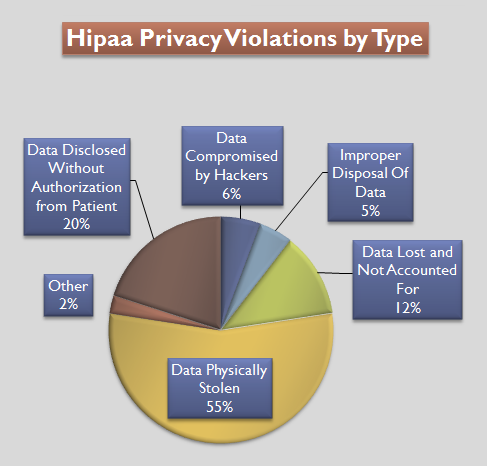|
Confidential
Confidentiality involves a set of rules or a promise usually executed through confidentiality agreements that limits the access or places restrictions on certain types of information. Legal confidentiality By law, lawyers are often required to keep confidential anything pertaining to the representation of a client. The duty of confidentiality is much broader than the attorney–client evidentiary privilege, which only covers ''communications'' between the attorney and the client. Both the privilege and the duty serve the purpose of encouraging clients to speak frankly about their cases. This way, lawyers can carry out their duty to provide clients with zealous representation. Otherwise, the opposing side may be able to surprise the lawyer in court with something he did not know about his client, which may weaken the client's position. Also, a distrustful client might hide a relevant fact he thinks is incriminating, but that a skilled lawyer could turn to the client's advanta ... [...More Info...] [...Related Items...] OR: [Wikipedia] [Google] [Baidu] |
Confidentiality Agreements
A non-disclosure agreement (NDA) is a legal contract or part of a contract between at least two parties that outlines confidential material, knowledge, or information that the parties wish to share with one another for certain purposes, but wish to restrict access to. Doctor–patient confidentiality (physician–patient privilege), attorney–client privilege, priest–penitent privilege and bank–client confidentiality agreements are examples of NDAs, which are often not enshrined in a written contract between the parties. It is a contract through which the parties agree not to disclose any information covered by the agreement. An NDA creates a confidential relationship between the parties, typically to protect any type of confidential and proprietary information or trade secrets. As such, an NDA protects non-public business information. Like all contracts, they cannot be enforced if the contracted activities are illegal. NDAs are commonly signed when two companies, indiv ... [...More Info...] [...Related Items...] OR: [Wikipedia] [Google] [Baidu] |
Duty To Warn
A duty to warn is a concept that arises in the law of torts in a number of circumstances, indicating that a party will be held liable for injuries caused to another, where the party had the opportunity to warn the other of a hazard and failed to do so. History Two landmark legal cases established therapists' legal obligations to breach confidentiality if they believe a client poses a risk to himself or others. The first one was ''Tarasoff v. Regents of the University of California'' where a therapist failed to inform a young woman and her parents of specific death threats made by a client. The other case was '' Jablonski by Pahls v. United States'' which further extended the responsibilities of duty to warn by including the review of previous records that might include a history of violent behavior. Product liability The duty to warn arises in product liability cases, as manufacturers can be held liable for injuries caused by their products if the product causes an injury ... [...More Info...] [...Related Items...] OR: [Wikipedia] [Google] [Baidu] |
Attorney–client Privilege
Attorney–client privilege or lawyer–client privilege is the name given to the common law concept of legal professional privilege in the United States. Attorney–client privilege is " client's right to refuse to disclose and to prevent any other person from disclosing confidential communications between the client and the attorney." The attorney–client privilege is one of the oldest privileges for confidential communications. The United States Supreme Court has stated that by assuring confidentiality, the privilege encourages clients to make "full and frank" disclosures to their attorneys, who are then better able to provide candid advice and effective representation. General requirements under United States law Although there are minor variations, the elements necessary to establish the attorney–client privilege generally are: # The asserted holder of the privilege is (or sought to become) a client; and # The person to whom the communication was made: ## is a member ... [...More Info...] [...Related Items...] OR: [Wikipedia] [Google] [Baidu] |
Settlement (litigation)
In law, a settlement is a resolution between disputing parties about a legal case, reached either before or after court action begins. A collective settlement is a settlement of multiple similar legal cases. The term also has other meanings in the context of law. Structured settlements provide for future periodic payments, instead of a one time cash payment. Basis A settlement, as well as dealing with the dispute between the parties is a contract between those parties, and is one possible (and common) result when parties sue (or contemplate so doing) each other in civil proceedings. The plaintiffs and defendants identified in the lawsuit can end the dispute between themselves without a trial. The contract is based upon the bargain that a party forgoes its ability to sue (if it has not sued already), or to continue with the claim (if the plaintiff has sued), in return for the certainty written into the settlement. The courts will enforce the settlement. If it is breached, the p ... [...More Info...] [...Related Items...] OR: [Wikipedia] [Google] [Baidu] |
Trade Secret
Trade secrets are a type of intellectual property that includes formulas, practices, processes, designs, instruments, patterns, or compilations of information that have inherent economic value because they are not generally known or readily ascertainable by others, and which the owner takes reasonable measures to keep secret. Intellectual property law gives the owner of a trade secret the right to restrict others from disclosing it. In some jurisdictions, such secrets are referred to as confidential information. Definition The precise language by which a trade secret is defined varies by jurisdiction, as do the particular types of information that are subject to trade secret protection. Three factors are common to all such definitions: A trade secret is information that * is not generally known to the public; * confers economic benefit on its holder the information is not publicly known; and * where the holder makes reasonable efforts to maintain its secrecy. In interna ... [...More Info...] [...Related Items...] OR: [Wikipedia] [Google] [Baidu] |
Catholic Church Sexual Abuse Cases
There have been many cases of sexual abuse of children by Catholic priests, nuns, Popes and other members of religious life. In the 20th and 21st centuries, the cases have involved many allegations, investigations, trials, convictions, acknowledgement and apologies by Church authorities, and revelations about decades of instances of abuse and attempts by Church officials to cover them up. The abused include mostly boys but also girls, some as young as three years old, with the majority between the ages of 11 and 14. Criminal cases for the most part do not cover sexual harassment of adults. The accusations of abuse and cover-ups began to receive public attention during the late 1980s. Many of these cases allege decades of abuse, frequently made by adults or older youths years after the abuse occurred. Cases have also been brought against members of the Catholic hierarchy who covered up sex abuse allegations and moved abusive priests to other parishes, where abuse continued. ... [...More Info...] [...Related Items...] OR: [Wikipedia] [Google] [Baidu] |
Child Abuse
Child abuse (also called child endangerment or child maltreatment) is physical, sexual, and/or psychological maltreatment or neglect of a child or children, especially by a parent or a caregiver. Child abuse may include any act or failure to act by a parent or a caregiver that results in actual or potential harm to a child and can occur in a child's home, or in the organizations, schools, or communities the child interacts with. The terms ''child abuse'' and ''child maltreatment'' are often used interchangeably, although some researchers make a distinction between them, treating ''child maltreatment'' as an umbrella term to cover neglect, exploitation, and trafficking. Different jurisdictions have different requirements for mandatory reporting and have developed different definitions of what constitutes child abuse, and therefore have different criteria to remove children from their families or to prosecute a criminal charge. History As late as the 19th century, cruelty t ... [...More Info...] [...Related Items...] OR: [Wikipedia] [Google] [Baidu] |
Information Privacy
Information privacy is the relationship between the collection and dissemination of data, technology, the public expectation of privacy, contextual information norms, and the legal and political issues surrounding them. It is also known as data privacy or data protection. Data privacy is challenging since attempts to use data while protecting an individual's privacy preferences and personally identifiable information. The fields of computer security, data security, and information security all design and use software, hardware, and human resources to address this issue. Authorities Laws Authorities by country Information types Various types of personal information often come under privacy concerns. Cable television This describes the ability to control what information one reveals about oneself over cable television, and who can access that information. For example, third parties can track IP TV programs someone has watched at any given time. "The addition of any infor ... [...More Info...] [...Related Items...] OR: [Wikipedia] [Google] [Baidu] |
Health Insurance Portability And Accountability Act
The Health Insurance Portability and Accountability Act of 1996 (HIPAA or the Kennedy– Kassebaum Act) is a United States Act of Congress enacted by the 104th United States Congress and signed into law by President Bill Clinton on August 21, 1996. It modernized the flow of healthcare information, stipulates how personally identifiable information maintained by the healthcare and healthcare insurance industries should be protected from fraud and theft, and addressed some limitations on healthcare insurance coverage. It generally prohibits healthcare providers and healthcare businesses, called ''covered entities'', from disclosing protected information to anyone other than a patient and the patient's authorized representatives without their consent. With limited exceptions, it does not restrict patients from receiving information about themselves. It does not prohibit patients from voluntarily sharing their health information however they choose, nor does it require confidentiali ... [...More Info...] [...Related Items...] OR: [Wikipedia] [Google] [Baidu] |
Hippocratic Oath
The Hippocratic Oath is an oath of ethics historically taken by physicians. It is one of the most widely known of Greek medical texts. In its original form, it requires a new physician to swear, by a number of healing gods, to uphold specific ethical standards. The oath is the earliest expression of medical ethics in the Western world, establishing several principles of medical ethics which remain of paramount significance today. These include the principles of medical confidentiality and non-maleficence. As the seminal articulation of certain principles that continue to guide and inform medical practice, the ancient text is of more than historic and symbolic value. It is enshrined in the legal statutes of various jurisdictions, such that violations of the oath may carry criminal or other liability beyond the oath's symbolic nature. The original oath was written in Ionic Greek, between the fifth and third centuries BC. Although it is traditionally attributed to the Greek doctor ... [...More Info...] [...Related Items...] OR: [Wikipedia] [Google] [Baidu] |
William Smoult Playfair
Dr William Smoult Playfair FRCP (27 July 1836 – 13 August 1903) was a leading Scottish obstetric physician and academic. In 1896 a trial, Kitson v. Plafair, found against him for a breach of medical confidentiality. Biography Playfair was born in St Andrews on 27 July 1836, the fourth of the five sons of Jessie (née Ross) of Edinburgh and George Playfair, inspector-general of hospitals in Bengal and son of James Playfair (1738–1819). Lyon Playfair, 1st Baron Playfair and Robert Lambert Playfair were among his brothers. He was educated in St Andrews before going on to study medicine at the University of Edinburgh in 1852. He graduated with an M.D. in 1856, presenting the thesis ''"Calculus of the bladder among the natives of India"'' He worked for some time in Paris. In 1857 Playfair entered the Indian Medical Service, and was an assistant surgeon at Awadh during the Indian Rebellion. From 1859-60 he was professor of surgery at the Calcutta Medical College; but left ... [...More Info...] [...Related Items...] OR: [Wikipedia] [Google] [Baidu] |
Duty To Protect
In medical law and medical ethics, the duty to protect is the responsibility of a mental health professional to protect patients and others from foreseeable harm. If a client makes statements that suggest suicidal or homicidal ideation, the clinician has the responsibility to take steps to warn potential victims, and if necessary, initiate involuntary commitment. The majority of people have, at some stage, had thoughts about killing someone. United States The duty to protect was established by '' Tarasoff v. Regents of the University of California'', which has been widely adopted by other states. This case determined that the clinician has the duty to warn an identifiable victim. '' Ewing v. Goldstein'' extended the duty to protect to include acting upon the statements of third parties that indicate possible threat, and determined that it was not sufficiently discharged by initiating involuntary commitment; warning identifiable victims is also necessary. United Kingdom S ... [...More Info...] [...Related Items...] OR: [Wikipedia] [Google] [Baidu] |







